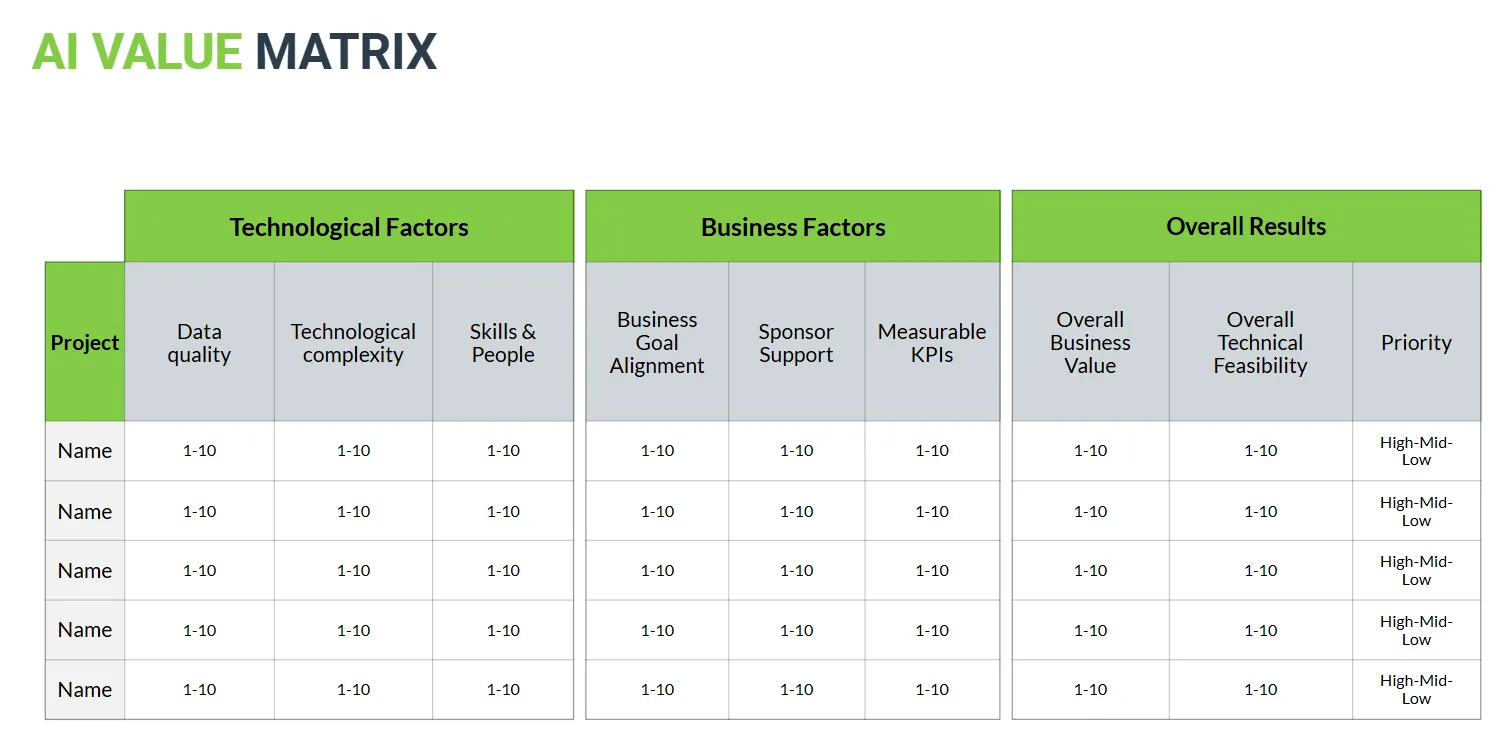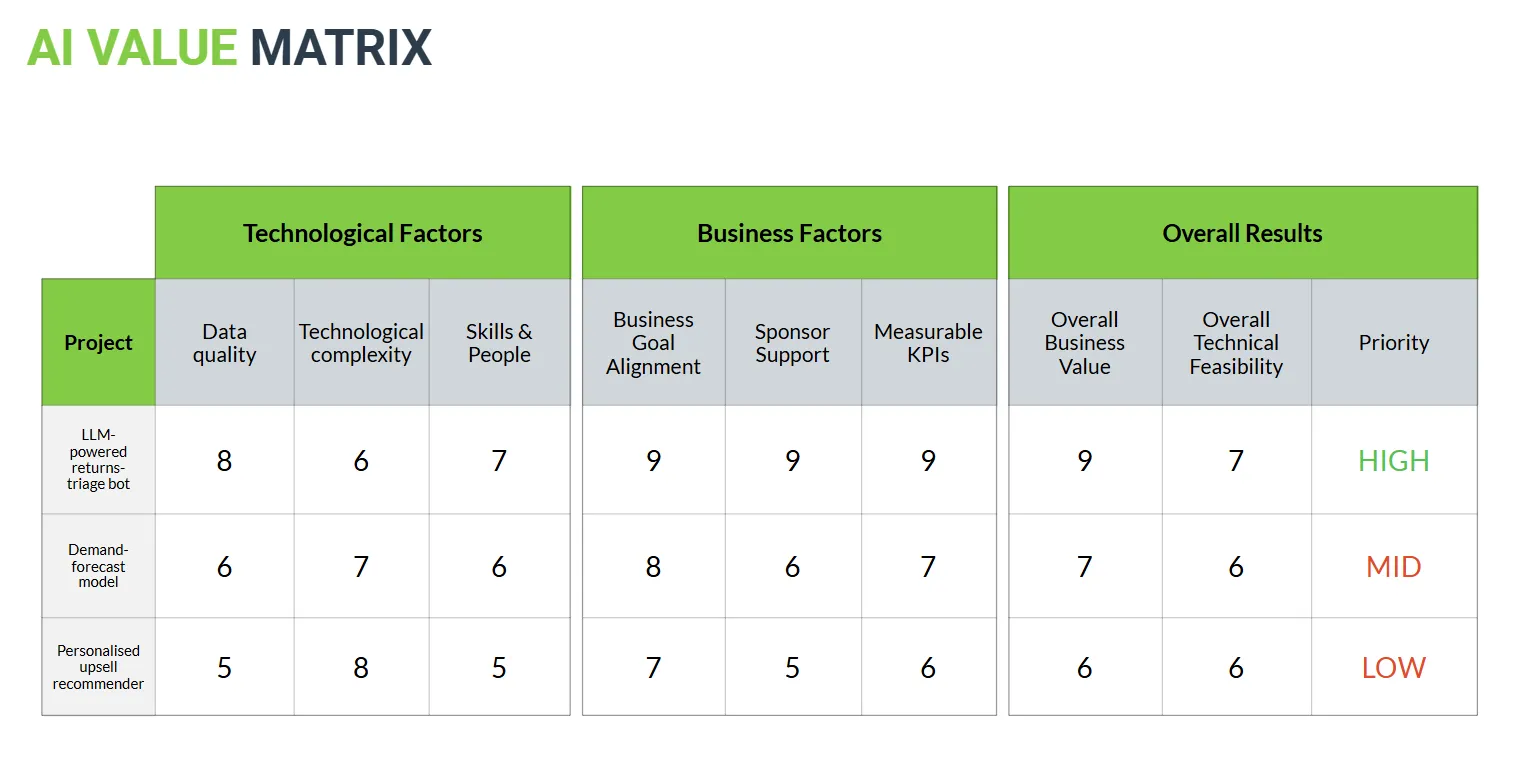

AI Development

July 1, 2025

10 min read

Artificial intelligence continues to change the way businesses operate. When applied sensibly, this technology opens up a wide range of new possibilities for efficiency, innovation, and profitability.
You can get the full webinar recording by following this link.
At Sigli, we strongly believe that we should use our deep business and tech knowledge to help individuals and companies uncover the practical value of cutting-edge AI-powered tools. One of our latest initiatives in this space was a free educational webinar for SMEs titled “The AI Profit Toolkit”. The event was hosted by Sigli’s Chief Business Development Officer Max Golikov.
This article includes the key takeaways from the webinar and offers actionable guidance for anyone looking to launch AI projects that deliver real value without excessive risks.
One of the most important principles to understand before diving into AI is that it is not always the answer.
AI is a powerful tool. But it doesn’t mean it should be applied universally. In many situations, simpler, more cost-effective technologies may yield better and faster results. The key is to find out why you want to use AI and whether a non-AI solution might accomplish the same goal with less complexity. If there are other approaches to addressing your needs, it may turn out to be much more sensible to use them instead of investing in an AI project.
Nevertheless, we by no means deny the business value of AI. It’s absolutely measurable and wide-ranging. According to industry insights shared during the webinar, AI’s contributions to business value break down into several categories:
The transformative power of AI is especially tangible when applied thoughtfully to pain points that drain time and resources.
To evaluate whether your future AI project is worth your time and money, we recommend you use an AI value matrix. This strategic tool helps find the right balance between the technical feasibility and business value of your ideas.
According to this approach, on the technical side, you will need to assess:
On the business side, it will be necessary to focus on such aspects as:
The projects that score highest across both dimensions are those with the highest likelihood of success and return on investment.

During the webinar, Max Golikov shared a couple of powerful case studies to demonstrate what you should pay attention to while considering different ideas for your AI projects. One of the examples was Sigli’s cooperation with a mid-sized UK apparel e-commerce retailer.
The company had an annual revenue of £48 million and 220K monthly orders. 12 fulfillment staff processed orders, returns, and refunds via three legacy tools (Magento, Zendesk, and homemade Excel macros).
When the company turned to Sigli, they had serious issues with the time needed for different processes. The returns and exchange queue averaged 5000 orders, which caused 7-day refund delays and seriously hurt the company’s rankings on Trustpilot. Apart from that, manual triage was pretty expensive as it cost £3.40 per refund.
Another problem was the fact that the customer support team had to spend 30% of time copy-pasting return merchandise authorization (RMA) info instead of applying upsell techniques and driving sales.
To solve the described issues, it was offered to consider different ideas, including an LLM-powered returns-triage bot, a demand-forecast bot, and a personalized upsell recommender.
As the AI value matrix shows, the first idea won.

For such a solution, the company had rich training data. The team had access to 95,000 labeled Zendesk tickets, which made it easy and fast to train the AI model.
From the integration perspective, there were no serious pitfalls. The solution only needed to connect with the Zendesk API and an existing RMA. It means that the implementation of this bot didn’t require a full system overhaul.
Moreover, it was quite simple to detect clear success metrics. Such KPIs as cost per return and refund turnaround time were already being tracked daily. Thanks to this, it was possible to measure the immediate project impact.
The project also could receive strong business sponsorship. The Fulfillment COO both owned the P&L and sponsored the pilot.
All this led to a successful AI implementation and tangible outcomes:
Let us briefly summarize what we’ve discussed above. Based on our practical experience, we recommend focusing on the following points to ensure your AI initiatives deliver real value:
Artificial intelligence offers incredible opportunities to streamline operations, reduce costs, and deliver standout customer experiences. However, all benefits become available only when this technology is used deliberately. It means that AI should be guided by clear goals, supported by strong data, and evaluated by hard metrics.
At Sigli, we can provide support for your business through every phase of the AI journey: from ideation and pilot planning to full-scale deployment. If you are ready to turn AI potential into business value, we are here to help.

